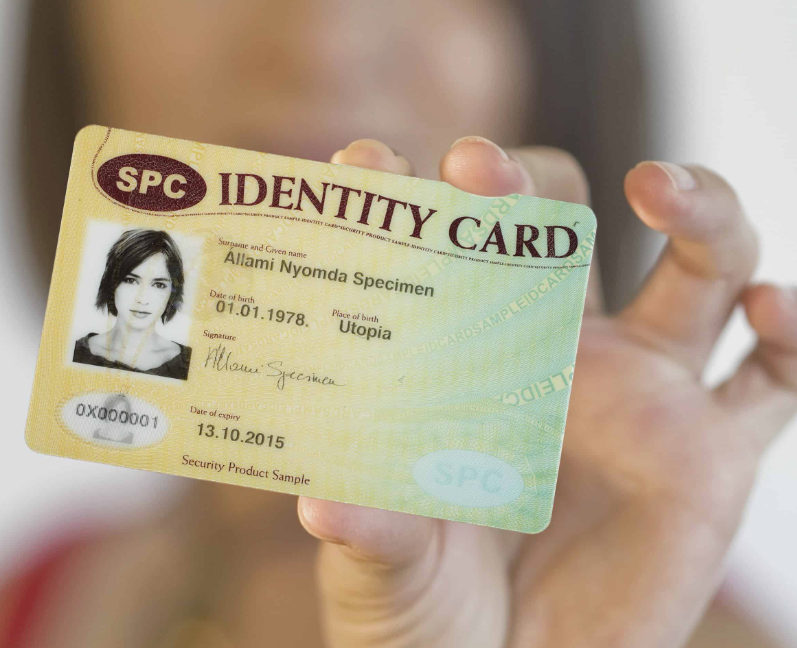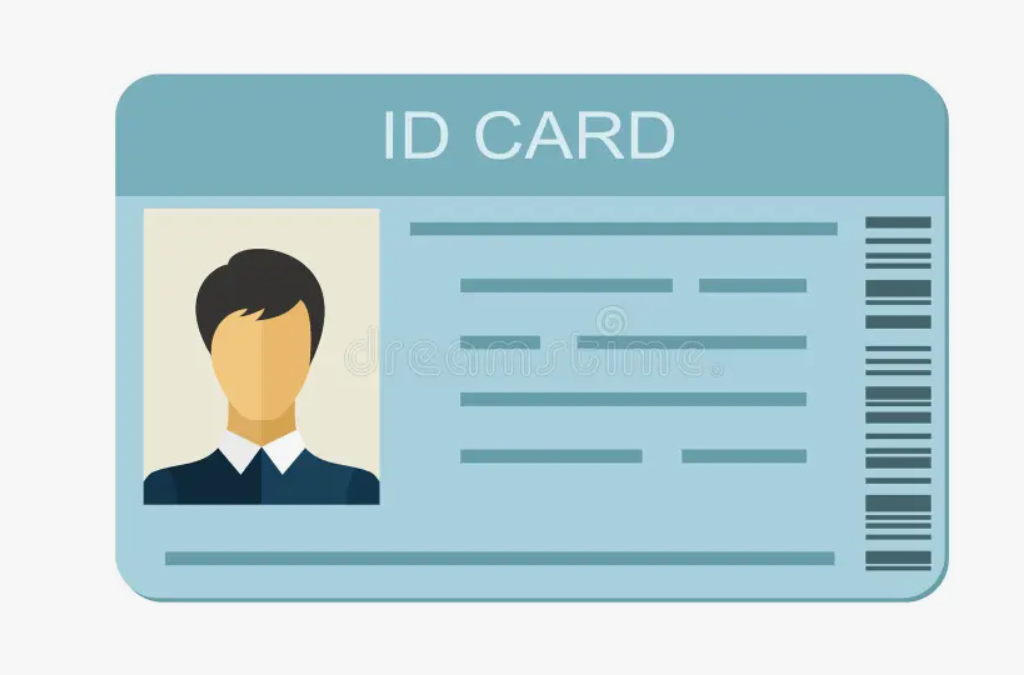
USA National ID Number Examples
This article provides examples of national ID numbers used in the United States and their purposes. In the United States, there are several types of national ID numbers that serve different purposes. These numbers are crucial for identification, tracking individual earnings, benefits eligibility, taxation, and other administrative purposes.
Here are some examples of us national id numbers used in the United States:
| ID Number | Purpose |
|---|---|
| Social Security Number (SSN) | The SSN is a unique nine-digit number issued by the Social Security Administration. It is primarily used for tracking individual earnings and benefits eligibility. |
| Driver’s License Number | The driver’s license number is a unique identifier assigned to individuals by the Department of Motor Vehicles. It is primarily used for identification and driving privileges. |
| Passport Number | The passport number is a unique alphanumeric code assigned to individuals by the U.S. Department of State. It is primarily used for international travel and identification. |
| Employer Identification Number (EIN) | The EIN is a nine-digit number assigned to businesses by the Internal Revenue Service. It is primarily used for tax purposes and identification of employers. |
| Individual Taxpayer Identification Number (ITIN) | The ITIN is a nine-digit number assigned to individuals who are not eligible for a Social Security Number but need to file taxes in the United States. |
| State Identification Number | The state identification number is a unique identifier assigned to individuals by state agencies. It is primarily used for identification purposes within the state. |
| Health Insurance Claim Number (HICN) | The HICN is a unique identifier assigned to individuals by the Centers for Medicare and Medicaid Services. It is primarily used for processing healthcare claims for Medicare beneficiaries. |
| Employment Authorization Document (EAD) Number | The EAD number is a unique identifier assigned to individuals who are authorized to work in the United States temporarily. It is primarily used for employment verification purposes. |
| Alien Registration Number (A-Number) | The A-Number is a unique identifier assigned to non-U.S. citizens by the Department of Homeland Security. It is primarily used for immigration and identification purposes. |
These us national id number play a crucial role in various aspects of life in the United States, ensuring proper identification, eligibility, and compliance with legal requirements.
Social Security Number (SSN)
The Social Security Number (SSN) is a crucial identification number issued by the Social Security Administration (SSA) in the United States. It serves as a unique nine-digit identifier for individuals and plays a significant role in various aspects of their lives.
The primary purpose of the SSN is to track individual earnings and determine eligibility for Social Security benefits. It allows the government to keep a record of an individual’s income throughout their working years, ensuring accurate calculations for retirement benefits, disability benefits, and other social welfare programs.
Moreover, the SSN is widely used for identification purposes in the United States. It is often required when applying for a job, opening a bank account, obtaining credit, or accessing government services. The SSN helps verify an individual’s identity and establish their legal presence in the country.
It is important to note that the SSN should be handled with utmost care and kept confidential. Sharing your SSN only with authorized entities and organizations is crucial to protect your personal information and prevent identity theft.
In summary, the Social Security Number (SSN) is a unique nine-digit identifier issued by the Social Security Administration. It serves as a vital tool for tracking individual earnings and benefits eligibility, as well as for identification purposes in the United States.
Driver’s License Number

The driver’s license number is a crucial piece of information assigned to individuals by the Department of Motor Vehicles (DMV). It serves as a unique identifier and is primarily used for identification and driving privileges. This number plays a vital role in various situations, such as traffic stops, renting vehicles, and proving one’s identity.
When you obtain a driver’s license, the DMV assigns you a specific license number that is unique to you. This number is often a combination of letters and numbers, and it varies from state to state. It is important to remember that the driver’s license number should be kept confidential to prevent identity theft or fraudulent activities.
The driver’s license number is used by law enforcement officers to access your driving records, verify your identity, and ensure that you have the necessary driving privileges. Additionally, it may be required when applying for certain jobs or when conducting financial transactions that require proof of identification.
It is important to note that the driver’s license number should not be confused with the license plate number, which is displayed on the vehicle itself. The license plate number is used for vehicle identification purposes, while the driver’s license number is specific to the individual driver.
Overall, the driver’s license number is a critical component of your identification and driving privileges. It is essential to keep this number secure and only provide it when necessary to protect your personal information and prevent any potential misuse.
Passport Number
The passport number is a crucial piece of information assigned to individuals by the U.S. Department of State. It serves as a unique alphanumeric code that plays a central role in facilitating international travel and identification. Whether you’re embarking on a vacation, conducting business abroad, or simply exploring the world, your passport number is your key to crossing borders and gaining entry into different countries.
When you apply for a passport, the U.S. Department of State assigns you a passport number that is exclusive to you. This alphanumeric code is typically a combination of letters and numbers, and it serves as a unique identifier for your passport. It is essential to keep your passport number secure and confidential, as it contains sensitive personal information and is a critical component of your identity.
When you travel internationally, your passport number is required during various stages of the journey. From booking your flight to passing through immigration and customs, your passport number is used for identification purposes. It is essential to provide your passport number accurately and ensure that it matches the information on your passport to avoid any travel complications or delays.
The passport number is also vital for security and verification purposes. It helps authorities confirm your identity and ensure that you are the rightful holder of the passport. Additionally, your passport number may be required when applying for visas or during interactions with foreign authorities.
In summary, the passport number is a unique alphanumeric code assigned by the U.S. Department of State, primarily used for international travel and identification. It is crucial to safeguard your passport number and ensure its accuracy when traveling abroad. By understanding the significance of your passport number, you can navigate the world with ease and confidence.
Employer Identification Number (EIN)
The Employer Identification Number (EIN) is a crucial identifier assigned to businesses by the Internal Revenue Service (IRS). It consists of a unique nine-digit number that serves multiple purposes, primarily related to tax obligations and the identification of employers.
The EIN is essential for businesses as it enables them to fulfill their tax responsibilities. It is used when filing tax returns, making tax payments, and communicating with the IRS regarding tax-related matters. Additionally, the EIN is required for opening business bank accounts, applying for business licenses, and hiring employees.
The EIN helps the IRS keep track of businesses and ensures they comply with tax regulations. It helps prevent tax evasion and facilitates accurate reporting of income and expenses. By assigning a unique identifier to each business, the IRS can easily identify and monitor their activities.
Obtaining an EIN is a straightforward process. Businesses can apply for an EIN online through the IRS website or by mail. The application typically requires basic information about the business, such as its legal name, address, and type of entity. Once approved, the business will receive its unique nine-digit EIN.
It is important for businesses to safeguard their EIN and use it only for legitimate purposes. Sharing the EIN with unauthorized individuals or using it for fraudulent activities can lead to severe legal consequences. Therefore, it is crucial for businesses to handle their EIN with care and ensure its confidentiality.
In conclusion, the Employer Identification Number (EIN) is an essential identifier assigned to businesses by the IRS. It plays a vital role in tax compliance and the identification of employers. Businesses must understand the importance of their EIN and use it responsibly to fulfill their tax obligations and maintain legal compliance.
Individual Taxpayer Identification Number (ITIN)
The Individual Taxpayer Identification Number (ITIN) is a crucial identification number assigned to individuals who are not eligible for a Social Security Number (SSN) but need to file taxes in the United States. It is a nine-digit number that serves as a unique identifier for tax purposes.
The ITIN is primarily used by individuals who are not eligible for an SSN, such as non-resident aliens, dependents or spouses of U.S. citizens or residents, and individuals who are not eligible for other types of identification numbers. It enables these individuals to comply with their tax obligations and ensures that they can file their tax returns accurately and efficiently.
The ITIN application process requires individuals to submit the necessary documentation to the Internal Revenue Service (IRS). This documentation includes proof of identity and foreign status, such as a valid passport or national identification card. Once approved, individuals receive their unique ITIN, which they can then use when filing their taxes.
It is important to note that the ITIN is solely for tax purposes and does not grant individuals legal authorization to work or receive Social Security benefits. It is specifically designed to ensure that everyone, regardless of their eligibility for an SSN, can fulfill their tax obligations and contribute to the U.S. tax system.
In summary, the Individual Taxpayer Identification Number (ITIN) is a nine-digit number assigned to individuals who are not eligible for a Social Security Number but need to file taxes in the United States. It plays a vital role in allowing individuals to comply with their tax obligations and contribute to the U.S. tax system, ensuring fairness and accuracy in the tax filing process.
State Identification Number

The state identification number is a crucial identifier assigned to individuals by state agencies. It serves as a unique identification tool primarily used for various identification purposes within the state. This number plays a significant role in ensuring the accuracy and efficiency of administrative processes, such as accessing government services, applying for benefits, and verifying identity.
Each state has its own system for assigning state identification numbers, which may vary in format and structure. These numbers are typically alphanumeric and follow specific rules and regulations set by the issuing state agency. The state identification number acts as a key identifier that helps differentiate individuals and maintain accurate records within the state’s database.
Moreover, the state identification number is often used in conjunction with other identification documents, such as driver’s licenses or state-issued identification cards. This combination of identification tools enhances the overall security and reliability of the state’s identification system, preventing identity theft and fraud.
State identification numbers are essential for a wide range of purposes, including voter registration, accessing government services, applying for permits or licenses, and conducting background checks. They provide a standardized and efficient method for state agencies to verify individuals’ identities and ensure the integrity of their records.
In summary, the state identification number is a unique identifier assigned by state agencies to individuals within a specific state. It serves as a vital tool for identification purposes and plays a crucial role in various administrative processes. By utilizing state identification numbers, state agencies can enhance security, accuracy, and efficiency in their operations, ultimately benefiting both individuals and the state as a whole.
Health Insurance Claim Number (HICN)
The Health Insurance Claim Number (HICN) is a vital identification number assigned to individuals by the Centers for Medicare and Medicaid Services (CMS). It serves as a unique identifier for individuals who are eligible for Medicare benefits, which include healthcare coverage for individuals aged 65 and older, as well as certain younger individuals with disabilities.
The HICN plays a crucial role in processing healthcare claims for Medicare beneficiaries. When individuals receive medical services, healthcare providers use the HICN to submit claims to Medicare for reimbursement. This number helps ensure that the correct individual’s medical records and coverage information are accurately linked to the claim.
The HICN is a nine-digit number that may contain both numbers and letters. It is important for Medicare beneficiaries to safeguard their HICN and only share it with authorized healthcare providers or individuals involved in the claims process. Protecting the privacy and security of this number helps prevent identity theft and fraud.
It is worth noting that the HICN is being replaced by a new Medicare Beneficiary Identifier (MBI) to enhance privacy and security. The MBI is a randomly generated number that does not contain any personal information, such as the individual’s Social Security Number. This transition aims to further protect Medicare beneficiaries’ sensitive information.
If you are a Medicare beneficiary or need to process healthcare claims for Medicare beneficiaries, it is essential to understand the significance of the Health Insurance Claim Number (HICN). By ensuring the accurate and secure use of this identifier, individuals can receive the necessary healthcare services and benefits they are entitled to under the Medicare program.
Employment Authorization Document (EAD) Number
The Employment Authorization Document (EAD) Number is a crucial identifier assigned to individuals who have been granted authorization to work in the United States on a temporary basis. This number serves as a means of verifying an individual’s eligibility for employment within the country.
The EAD number is issued by the United States Citizenship and Immigration Services (USCIS) to individuals who have applied for and been granted work authorization. It is a unique identifier that helps employers verify an individual’s employment eligibility during the hiring process.
Employers are required by law to verify the employment eligibility of their employees, and the EAD number plays a crucial role in this process. When completing the Form I-9, which is used to verify the identity and employment authorization of individuals hired for employment in the United States, employers are required to record the EAD number of employees who present an Employment Authorization Document as proof of their eligibility to work.
The EAD number is typically a combination of letters and numbers that is unique to each individual and serves as a means of identification and verification. It helps ensure that individuals who are authorized to work in the United States are able to do so legally and are protected from potential exploitation or discrimination in the workplace.
Overall, the EAD number plays a vital role in the employment verification process, allowing employers to confirm an individual’s eligibility to work in the United States. By recording and verifying this unique identifier, employers can ensure compliance with immigration laws and provide a safe and lawful working environment for all employees.
Alien Registration Number (A-Number)
The Alien Registration Number (A-Number) is a unique identifier assigned to non-U.S. citizens by the Department of Homeland Security. It plays a crucial role in immigration and identification processes. The A-Number serves as a means of tracking and identifying individuals who are not U.S. citizens residing in the country.
This unique identifier is assigned to non-U.S. citizens when they first enter the United States or when they apply for immigration benefits. It is used for various immigration-related purposes, including visa applications, employment authorization, and eligibility for certain benefits and services.
The A-Number is an alphanumeric code that typically consists of eight or nine digits. It helps immigration authorities maintain accurate records and ensure proper documentation of non-U.S. citizens. This number is essential for individuals to navigate the complex immigration system and access the rights and privileges granted to them.
Tables and lists can be used to provide additional information about the specific format and usage of the A-Number. For example, a table can be created to outline the structure of the A-Number, including the meaning of each digit or character. Additionally, a list can be used to highlight the various immigration and identification purposes for which the A-Number is utilized.
In summary, the Alien Registration Number (A-Number) is a unique identifier assigned to non-U.S. citizens by the Department of Homeland Security. It serves as a vital tool for immigration and identification purposes, enabling accurate record-keeping and documentation within the U.S. immigration system.
The United States has various national ID numbers that serve different purposes. Let’s explore some examples:
The SSN is a unique nine-digit number issued by the Social Security Administration. It is primarily used for tracking individual earnings and determining eligibility for social benefits. This number plays a crucial role in various aspects of an individual’s life, including employment, taxes, and retirement benefits.
The driver’s license number is a unique identifier assigned to individuals by the Department of Motor Vehicles. It serves as a form of identification and grants driving privileges. This number is essential for verifying an individual’s driving record, ensuring road safety, and complying with traffic regulations.
The passport number is a unique alphanumeric code assigned to individuals by the U.S. Department of State. It is primarily used for international travel and serves as a means of identification when crossing borders. This number is crucial for ensuring secure travel and verifying an individual’s citizenship or residency status.
The EIN is a nine-digit number assigned to businesses by the Internal Revenue Service. It is primarily used for tax purposes and identification of employers. This number is essential for businesses to fulfill their tax obligations, hire employees, and establish their legal identity.
The ITIN is a nine-digit number assigned to individuals who are not eligible for a Social Security Number but need to file taxes in the United States. It enables these individuals to comply with tax regulations and fulfill their tax obligations.
The state identification number is a unique identifier assigned to individuals by state agencies. It is primarily used for identification purposes within the state. This number is often required for various transactions, such as obtaining state-specific benefits, accessing certain services, or proving residency.
The HICN is a unique identifier assigned to individuals by the Centers for Medicare and Medicaid Services. It is primarily used for processing healthcare claims for Medicare beneficiaries. This number ensures smooth and accurate processing of healthcare claims, enabling individuals to receive the necessary medical services and benefits.
The EAD number is a unique identifier assigned to individuals who are authorized to work in the United States temporarily. It is primarily used for employment verification purposes. This number helps employers verify an individual’s eligibility to work and ensures compliance with immigration laws and regulations.
The A-Number is a unique identifier assigned to non-U.S. citizens by the Department of Homeland Security. It is primarily used for immigration and identification purposes. This number plays a crucial role in managing immigration processes, ensuring national security, and verifying an individual’s immigration status.



